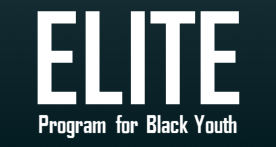Author: Adiki Puplampu
Date: 16 March 2023
Ababo Gudisa is a first year PhD student in the Department of Chemical and Materials Engineering at the University of Alberta. In 2022 she was accepted as a fellow in the IBET PhD Program.
Can you tell me a little bit about your path to engineering and the work you are currently doing in your PhD Program?
So my path to engineering goes back about a decade. In high school I had to choose between engineering and going to med school but after consultation with senior students from college I finally decided to go into engineering. I did chemical engineering for my bachelors and then after graduating I received a scholarship in Italy, so I did my masters there. Then I moved to Canada, and I came across this opportunity with ELITE and a PhD at the University of Alberta.
The project I am currently working on is on nano precipitation for micro plastic analysis. Nano precipitation of different polymers can be used in drug delivery or micro plastic analysis. We just started in September, so we have some preliminary results.
How has the IBET Program supported your academic work and professional aspirations?
This program really is helpful for me. We had the Entrepreneurship Design Series Program in July and August. It was really interesting, and I learned a lot. We learned a lot of things from basic financial things like saving, investing, and entrepreneurship and we also learned about ideation and innovation. So that was really helpful in addition to the PhD program here.
In your opinion why is it important that a program like IBET exists in Canada?
I believe we need to have more programs like IBET actually. After joining the University of Alberta, I observed there is really a huge under representation for the Indigenous and Black communities, especially in engineering and science departments. And I believe this kind of program will help our community to participate more and even encourage more people into academia.
What difference do you think a program like IBET makes to the professional and academic ecosystem in your field?
I believe the impacts will be huge. So I think we just started [the program] at the University of Alberta and I have met with the other IBET fellows here. This year there are three people. And I believe in five years we might have 15-20 people and if even half of those people decide to join academia that would be really impactful.
What areas of sub-fields of engineering and technology do you see benefiting most from the support a program like IBET offers? Are there areas you see where Black and Indigenous students are particularly underrepresented?
So I’ve had the chance to meet with people from different departments in engineering and so far from my experience there are very few people from Indigenous and Black communities. I’ve spoken to people in chemical engineering and electrical engineering and mechanical engineering and it's all the same thing, there is really huge underrepresentation speaking from engineering departments only. But I believe that we can translate that to other science departments as well.
As part of this fellowship program, you were asked to participate in the ELITE Program Entrepreneurship Design Series and serve as a peer-to-peer mentor for the interns. Can you tell me a bit about your experience serving in that role?
The Entrepreneurship Design Series was more of a learning opportunity for me than a mentorship opportunity. Of course, I did mentor because the members of the group were from different backgrounds and from different levels of education. So it was really interesting. I learned a lot and I hope they learned from me. And I developed my communication skills, my leadership skills, in addition of course to the financial things from the program. So I believe it benefited me and I also helped the members of the group.
Are you interested in exploring future mentorship opportunities?
Yes, it [the Entrepreneurship Design Series] gave me the opportunity to think about how I can be impactful to other people and helpful. So I contacted ERIEC and I am starting mentoring with them.
When you look to the future how do you see yourself applying your knowledge and experience to support your community?
So initially my interest was to join the academy, but it’s shifting a little bit. Now, since I took part in the Entrepreneurship Design Series, I might join industry. As an immigrant, I’ve seen a lot of gaps and people struggling to find a job and struggling to get the Canadian experience. So that’s one of the reasons I wanted to work with ERIEC as well. So using the experiences and the knowledge again, through this program, I will be helping people who are unable to get a job and underrepresented people to be able to get the opportunity to get into the industry.
Anything else to add?
I would like to thank all the people who organized and facilitated this opportunity for us. It’s really a huge opportunity for people and people like me to get this opportunity to do a PhD and at the same time get training about Entrepreneurship and other important things. So I’d like to say thank you very much.

